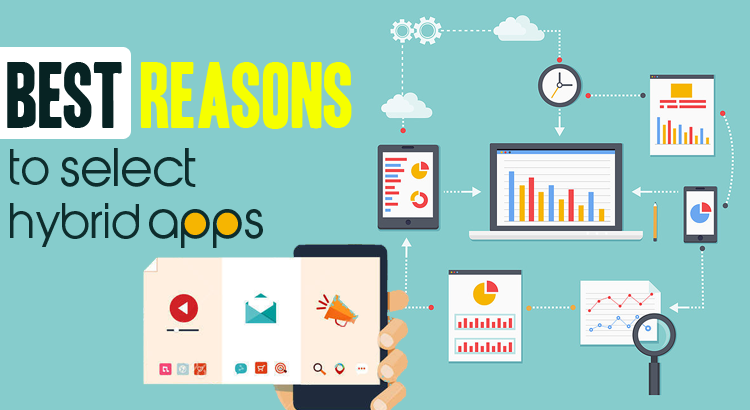In the present Digital Marketing age, HTML is the most extensively used languages for mobile app developers. Cross-platform portability of code and the low cost of development are the reasons behind most developers going for web technologies. Being of tremendous benefit, today it’s necessary for the developers to build great hybrid mobile apps and having knowledge of HTML, CSS and JavaScript is enough to get started.
Here are the tools and frameworks that can help you create hybrid applications for your business or clients:
• IONIC
• Mobile Angular UI
• Intel XDK
• Appcelerator Titanium
• PhoneGap
To start with, Hybrid mobile app is somewhere a combination of native mobile app and a mobile web app. What makes a hybrid application more attractive is the fact that you don’t have to develop a full app for every mobile platform as it gets settled on a common platform. Its cross-platform by design and turns out to be remarkable in solving issues with full web apps. These ways will help you in developing a successful hybrid mobile app:
User Experience (UX)
You must have seen that at times a website looks absolutely different when we use different browsers for it on different computers. The same happens with the mobile web and that unfortunately does no good for user experience (UX) or branding. However, you get the solution for the same in the form of hybrid app as that opens your customers to experience the capabilities of the individual mobile device while using an app that’s basically standard. When in need of an update, a single update will be apt for app on all platforms that certainly adds to the user experience for the customers. Even when the customers switch to another mobile platform, they would enjoy a consistent user experience.
Higher speed
Hybrid app has greater speed than a native app or mobile web app owing to it being highly-featured. Till the time large graphics are not required, the app will process faster and also there is no need of network communication that often slows down an application.
Integration
Just as in native mobile apps, hybrid mobile apps require the mobile device’s own programming for synchronization with other mobile apps, via a wrapper or overlay. By this one can take in that it’s going to work well with GPS, cameras, messaging and other device information so to offer an effective service to your customers.
Availability
There are views that mobile users have trouble in downloading and installing apps, but that doesn’t hold any truth. However, it does happen that often those people don’t use those apps, due to ineffective marketing. Still, the audience does expect your app to be there and to reach an app store you would require a hybrid app.
Offline Use
In order to use some data offline, hybrid mobile apps use the device’s API and that’s of great help for the customers who are watching data costs or have poor connectivity.
So, move towards impressing your customers with Hybrid Mobile Application.





One thought to “Five advantages of Hybrid apps in Mobile Application Development arena”
Comments are closed.